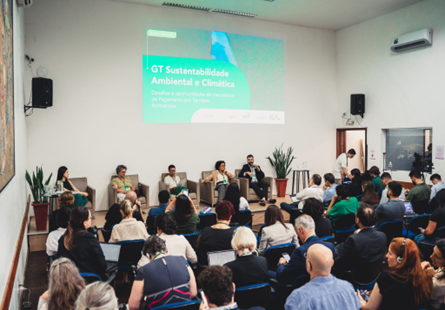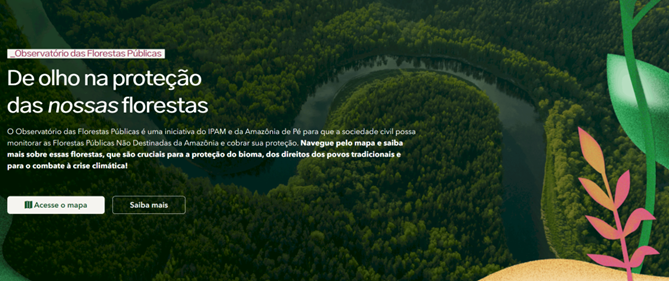Payment for Environmental Services: many opportunities and some challenges

Payment for Environmental Services: many opportunities and some challenges
A meeting in Manaus (AM) was attended by iCS, alongside representatives from civil society and the public and private sectors, including the Ministry of the Environment
The possibilities and the challenges of Payments for Environmental Services (PES) were the central topics of an event by the Ministry of Environment and Climate Change (MMA) alongside representatives from civil society and members of traditional communities and financial institutions. In addition to encouraging sustainable practices, PES offer significant advantages to the groups that play crucial roles in the conservation of the forests, such as the indigenous peoples and traditional communities.
The purpose of the meeting, which took place on June 18 in Manaus (AM), was to provide an overview of the last three years of the National Policy of PES and to consider ideas for the inclusive governance structure and monitoring instruments with the potential to attract investments for the agenda.
PES is essential for the conservation of the standing forest and the National Policy of PES represents an advance in the sustainability of the country, with the potential to influence the global bioeconomy. It establishes the Federal Program for the Payment for Environmental Services (PFPSA), creates the National Registry of Payment for Environmental Services (CNPSA) and defines the Contracts for the Payment for Environmental Services.
A document will soon be published with the survey and the analyses presented at this meeting, promoted by the Environmental and Climate Sustainability Working Group (WG). The report aims to enhance discussions involving the initiative about the bioeconomy at G20.



A seminar in Manaus (AM) is entitled “The Challenges and Opportunities of the Payment Mechanism for Environmental Services.” Photo: Disclosure


